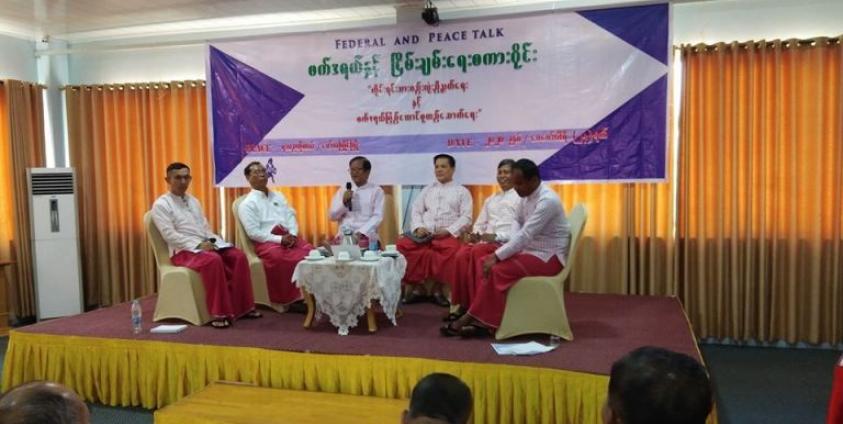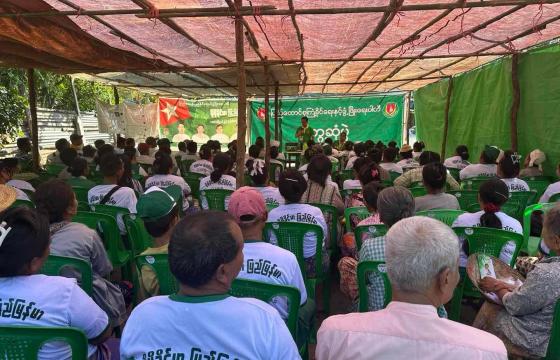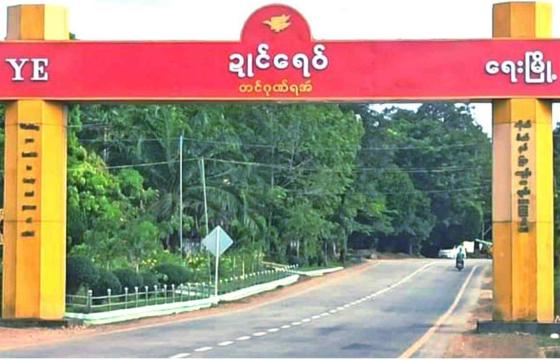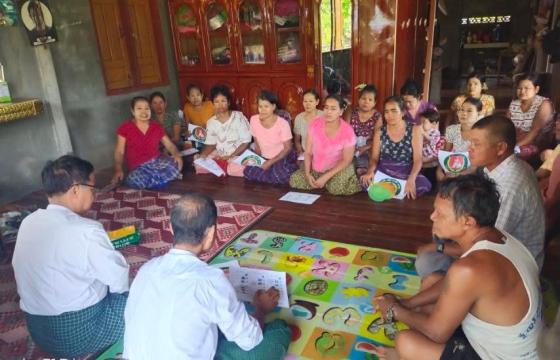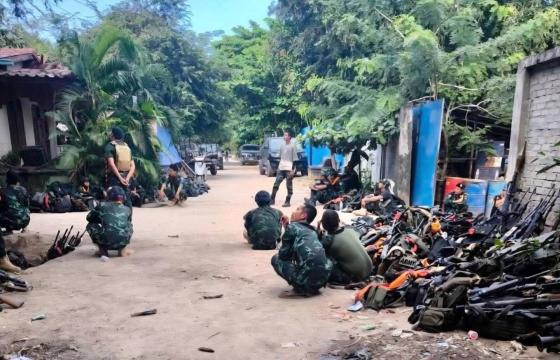Ethnic nationalities are fighting for stability and if a genuine federal union is not established, Myanmar might collapse, suggested the New Mon State Party (NMSP) Chairman, Nai Hongsa at the Peace Talks held at the Federal Affairs and Policy Center (FAPC).
He said, “Ethnic nationalities never lose their strength to fight [for their rights]. In this regard, international experts believe that peace can be achieved only if we are able to build a genuine union, — in other words, a genuine federal union must include the right to decide on our ethnic issues. The country might collapse if a genuine union fails to be established.”
The Federal Peace Talk program took place under the topic “Ethnic Unity and Federal Union Establishment” at the Rehmonya Hotel in Mawlamyine on February 27th. The event was attended by NMSP Chairperson Nai Hongsa, Mon State Hluttaw Vice-chair Dr. Aung Naing Oo, Mon Unity Party (MUP) Joint Secretary 1 Nai Layea Tameh, Mon Youth Forum Advisor Nai Nyan Seik Raman, FAPC Program Director Dr. Siri Mon Chan along with the other FAPC Program Director, Nai Banyar Mon who served as the event facilitator. Nearly 100 people were in attendance.
“Today, powerful ethnic nationalities are still carrying weapons. They are armed because they do not get their rights. They [the government] have also been fighting for more than 70 years. None of the ethnic armed groups have been eradicated,” said Nai Hongsa.
The Mon, Pa-O, and Rakhine ethnic armed groups did exchange their arms for democracy in 1958, but no ethnic rights were assured at that time. After 1995, the Pa-O and Palaung ethnic armed groups disarmed to support a peace agreement but later decided to take up arms again.
The FAPC discussion assumes that federalism will bring peace and prosperity to our country, which has lagged due to decades of civil war.
Nai Banyar Mon challenged this assumption, noting that federalism in eastern Europe, specifically in, Yugoslavia may have played a role in the collapse of the Soviet Union and that Sudan’s experience with federalism led to the country being divided into south and north.
It was also pointed out there are many developed countries that have built a federal system based on unity and diversity. This includes the United States, Australia, Brazil, Canada, Germany, India, Mexico, Nigeria, and Switzerland.


